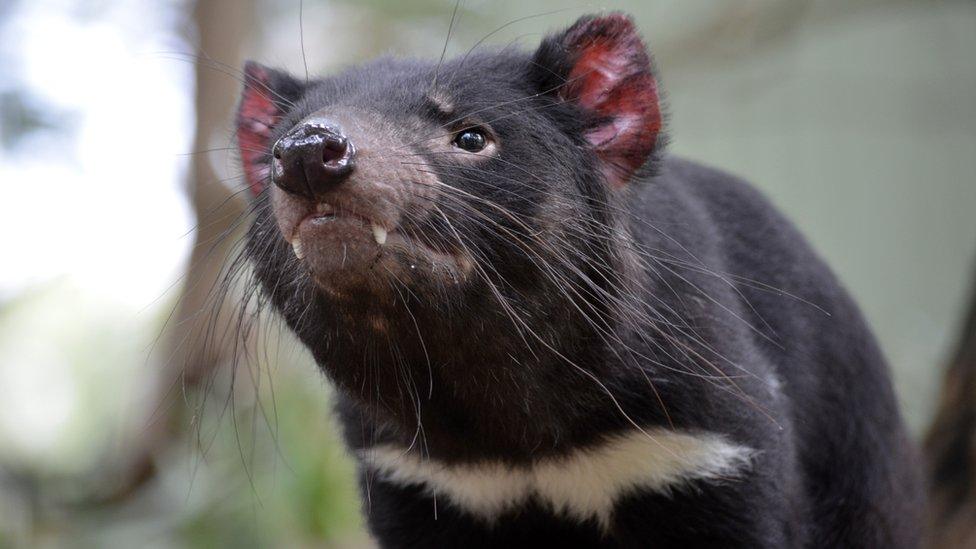Tasmanian devil cancers targeted by human drugs
- Published
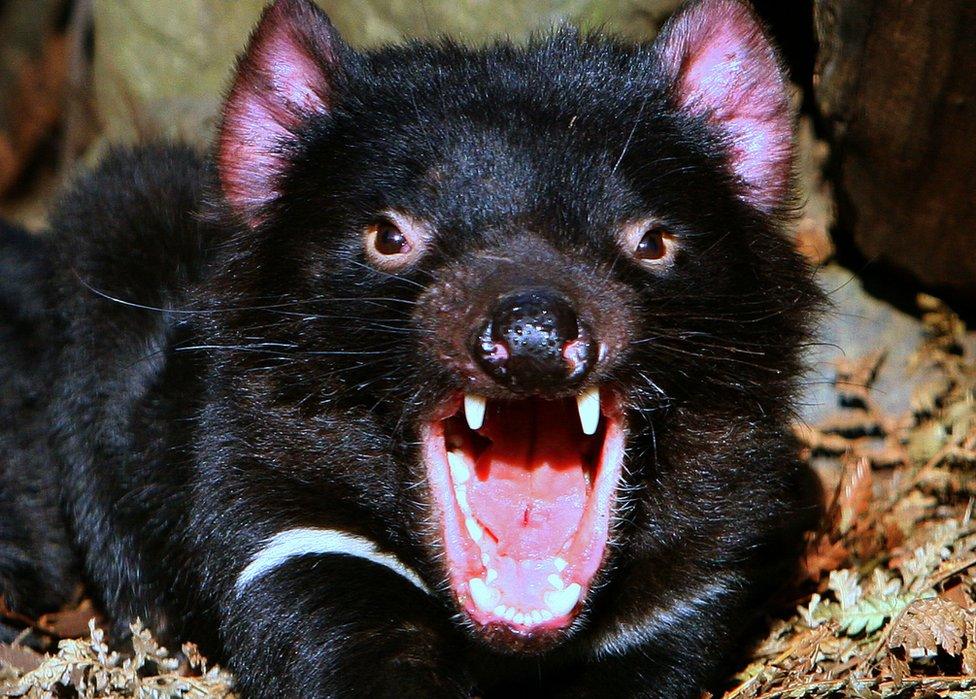
The fatal cancers are usually spread when fighting animals bite each others' faces
Cancers threatening to decimate the Tasmanian devil population could be halted by using drugs developed for human cancers, researchers have found.
Two transmissible cancers affect the endangered carnivorous marsupial found in the wild only in Tasmania.
Tumours usually spread when the animals bite each others' faces during fights.
However, Cambridge University scientists found drugs targeting receptors in humans could stop cancer in devils under laboratory conditions.
Two transmissible strains of the disease, which cause disfiguring facial tumours, have spread among the marsupials and led to a significant decline in populations in their namesake Australian island state.
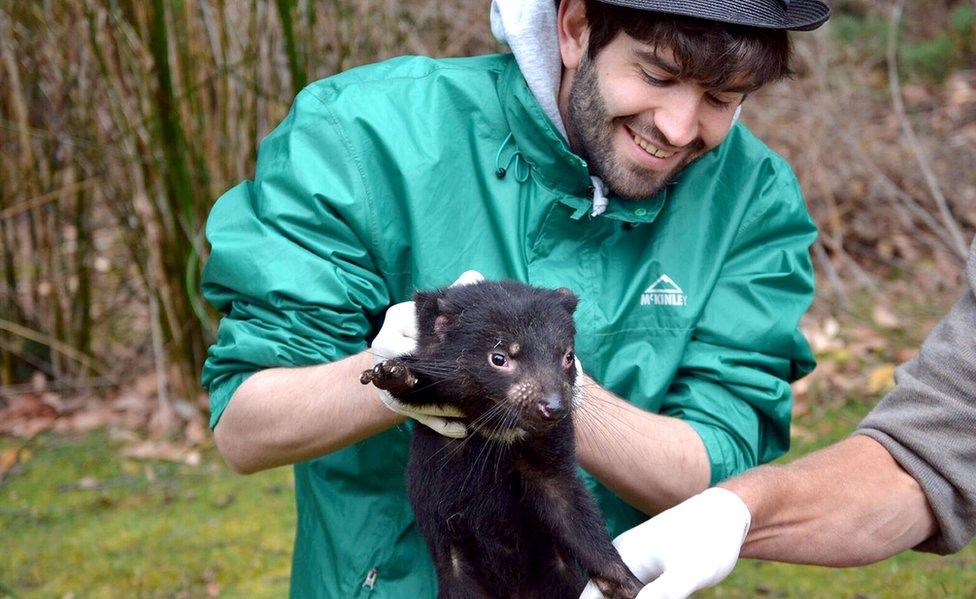
Co-author of the study, Maximilian Stammnitz, examining a Tasmanian devil
One strain, which was first noted in one animal in 1996, has spread throughout the "Tassie devil" population, while a second - first documented in 2014 - is confined to the south east of the island.
However, while both strains are biologically different, visibly they are similar and are thought to be passed between devils through the transfer of living cancer cells when they bite each other.
"When fighting, Tasmanian devils often bite their opponent's face, which may predispose these animals to the emergence of this particular type of cancer via tissue injury," said Maximilian Stammnitz, co-author of the Cambridge University study into the disease.
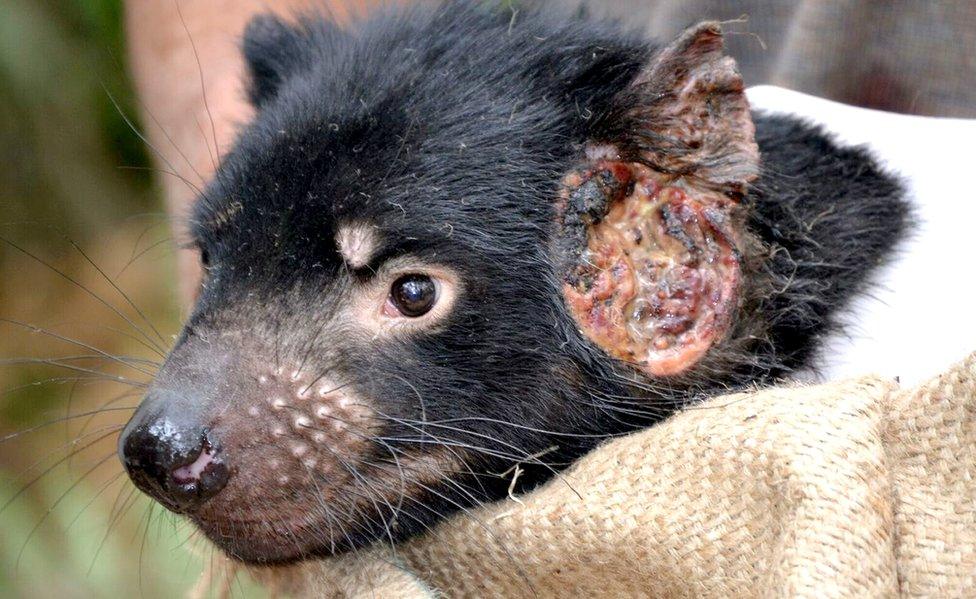
The facial tumours are usually fatal
"As biting occurs on the face, this would simultaneously provide a route of cell transmission."
The researchers, led by Dr Elizabeth Murchison, from the Department of Veterinary Medicine at the university, found molecules known as receptor tyrosine kinases (RTKs) played an important role in sustaining the growth and survival of both the cancers.
However, drugs targeting RTKs - developed for human cancer - were found to efficiently stop the growth of devil cancer cells in a lab setting.
"This study gives us optimism that anti-cancer drugs that are already in use in humans may offer a chance to assist with conservation efforts for this iconic animal," Dr Murchison said.
The results of the study have been published in the journal Cancer Cell.
- Published10 March 2017
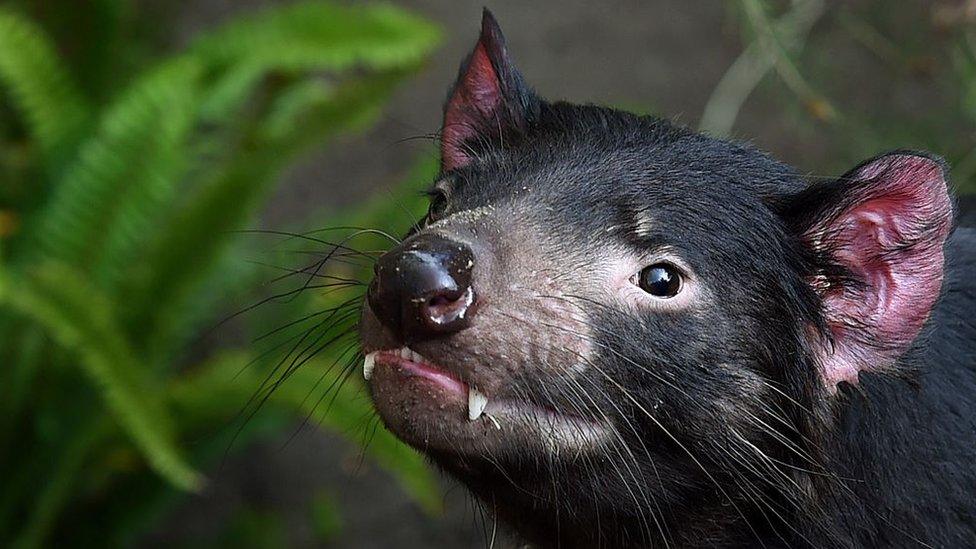
- Published18 October 2016
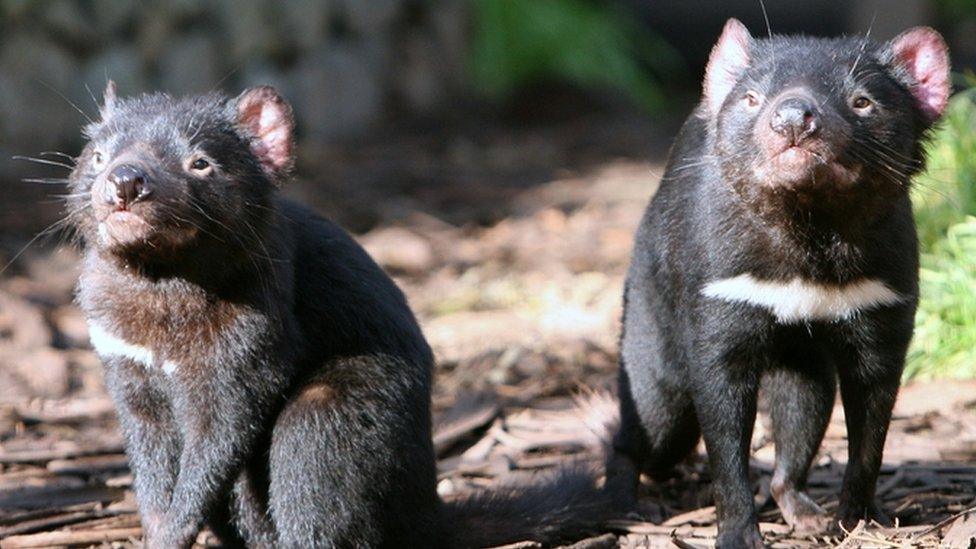
- Published30 August 2016
